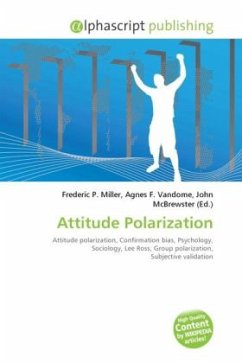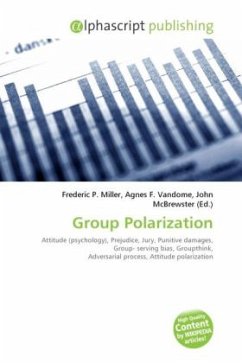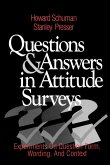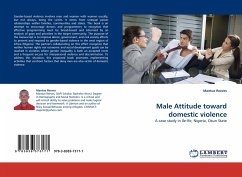Attitude polarization, also known as belief polarization, is a phenomenon in which a disagreement becomes more extreme as the different parties consider evidence on the issue. It is one of the effects of confirmation bias: the tendency of people to search for and interpret evidence selectively, to reinforce their current beliefs or attitudes. When people encounter ambiguous evidence, this bias can potentially result in each of them interpreting it as in support of their existing attitudes, widening rather than narrowing the disagreement between them. The effect is observed with issues that activate emotions, such as political "hot button" issues. For most issues, new evidence does not produce a polarization effect. For those issues where polarization is found, mere thinking about the issue, without contemplating new evidence, produces the effect. Social comparison processes have also been invoked as an explanation for the effect, which is increased by settings in which people repeat and validate each other's statements. This apparent tendency is of interest to psychologists, but also to sociologists and philosophers.
Bitte wählen Sie Ihr Anliegen aus.
Rechnungen
Retourenschein anfordern
Bestellstatus
Storno








